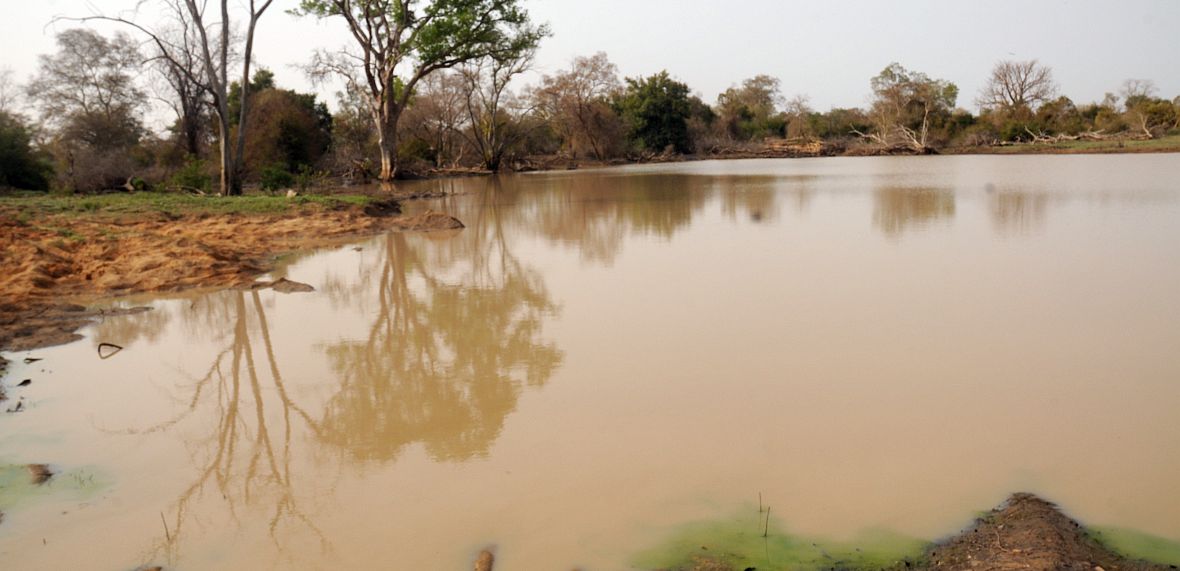Sanoussi Rabe, National Director of Water Resources/MHA of Niger: "Water resources monitoring equipment with remote transmission is a first in Niger”
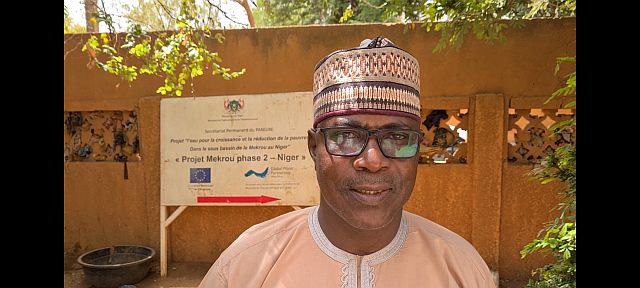 I would like to thank our partners for their important support in the field of water resources monitoring in Niger and particularly in the Mekrou basin. We have just received equipment to strengthen our qualitative and quantitative monitoring of water resources in Niger. It is a first to have such equipment that will allow some remote management, which is something important with the transmission capacity that greatly improves our capabilities. We are in the process of putting everything in place to make this system operational. It is also important that we have sustainability in the actions with the measures of securing the system that will be taken considering the issue of monitoring water resources in Niger.
I would like to thank our partners for their important support in the field of water resources monitoring in Niger and particularly in the Mekrou basin. We have just received equipment to strengthen our qualitative and quantitative monitoring of water resources in Niger. It is a first to have such equipment that will allow some remote management, which is something important with the transmission capacity that greatly improves our capabilities. We are in the process of putting everything in place to make this system operational. It is also important that we have sustainability in the actions with the measures of securing the system that will be taken considering the issue of monitoring water resources in Niger.
Moussa Adamou, Head of Water Resources, Tillaberi Regional Directorate: "We, the technical services, are at the center of the implementation of IWRM bodies”
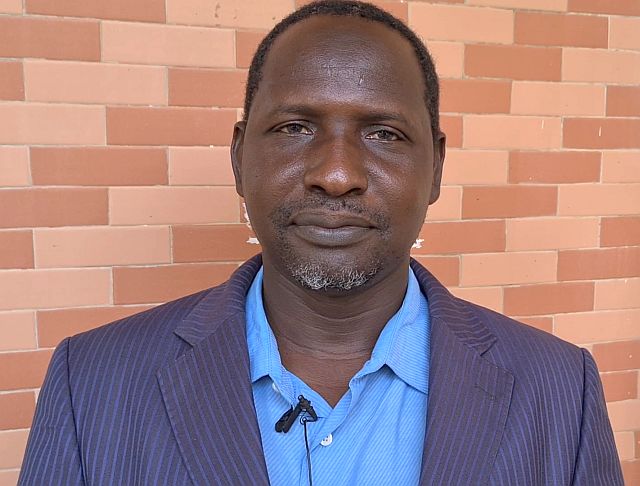 Today, we are really satisfied to see the level of implementation of the National Action Plan for Integrated Water Resources Management, particularly in its component of setting up IWRM bodies, which is one of the components that is a bit slow. But we note that there is an evolution, and we are at the phase of installation of the IWRM bodies. The installation of the IWRM organs of Mekrou is the 2nd after that of Maradi and constitutes a real satisfaction for us.
Today, we are really satisfied to see the level of implementation of the National Action Plan for Integrated Water Resources Management, particularly in its component of setting up IWRM bodies, which is one of the components that is a bit slow. But we note that there is an evolution, and we are at the phase of installation of the IWRM bodies. The installation of the IWRM organs of Mekrou is the 2nd after that of Maradi and constitutes a real satisfaction for us.
We, as a technical service are at the forefront of the implementation of PANGIRE and as such lead in the implementation of the Mekrou Project and fully involved in the establishment of IWRM bodies.
Hama Guida, Departmental Director of Hydraulics and Sanitation of Falmey: "We provide advisory support to the authorities in place”
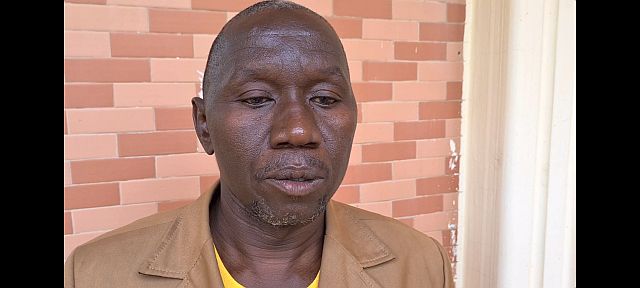 Our role in the project is to accompany the communes in the implementation of activities. We provide advisory support to the authorities, the mayors and prefects. The project provides us with financial and material support that facilitates the realization of our mission. We have always been involved in the implementation of activities, from planning to the establishment of water users' associations in the villages, local water committees at the commune level, and we have just set up the Mekrou water agency council at the regional level.
Our role in the project is to accompany the communes in the implementation of activities. We provide advisory support to the authorities, the mayors and prefects. The project provides us with financial and material support that facilitates the realization of our mission. We have always been involved in the implementation of activities, from planning to the establishment of water users' associations in the villages, local water committees at the commune level, and we have just set up the Mekrou water agency council at the regional level.
Habib Sounna, vice-president of the CLE of Falmey: "The Mékrou project has made us aware of our responsibility for good water management”
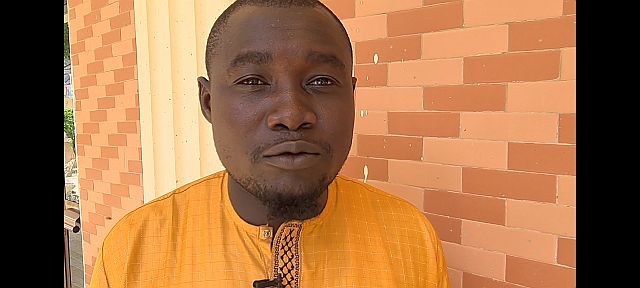 Many of the members of the CLE are young people and it is not for nothing that they were chosen because they are the actors in water management. Before the CLE, the WUAs were set up in the same format. In our commune, there are five villages that have a WUA: Tonko Tiarré, Tiotioba Peul, Bouye bongo Zerma, Banizoungo boubia and Boumba. There are young people, water users (farmers, herders, gold miners).
Many of the members of the CLE are young people and it is not for nothing that they were chosen because they are the actors in water management. Before the CLE, the WUAs were set up in the same format. In our commune, there are five villages that have a WUA: Tonko Tiarré, Tiotioba Peul, Bouye bongo Zerma, Banizoungo boubia and Boumba. There are young people, water users (farmers, herders, gold miners).
Before the arrival of the Mékrou project, we did not know that water is a resource and a shared good and we knew that it is our responsibility to manage it well. Without good water management, we will face enormous problems. And this project has allowed us to become aware of this thanks to the workshops and trainings in which we take part as part of the implementation of the project.
Hadja Zeinabou Almoustapha, CNU Tillabéri, vice-president of the Mékrou Water Agency Council: "We cannot talk about water without talking about women”
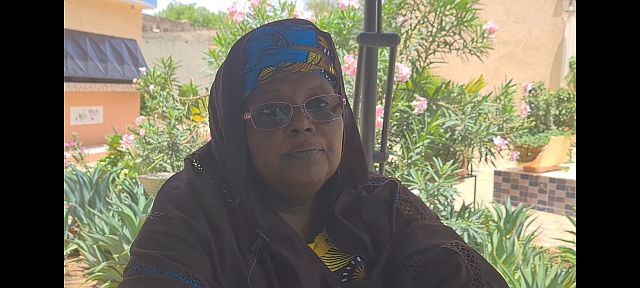 I was elected 2nd vice-president of the Mékrou Water Agency Council which covers the two regions of Dosso and Tillabéri as well as three communes (Kirtachi, Tamou and Falmey). So my presence safeguards gender and we know that women are at the base of water consumption. She is the first user of water, so we cannot talk about water without women.
I was elected 2nd vice-president of the Mékrou Water Agency Council which covers the two regions of Dosso and Tillabéri as well as three communes (Kirtachi, Tamou and Falmey). So my presence safeguards gender and we know that women are at the base of water consumption. She is the first user of water, so we cannot talk about water without women.
The Mékrou project is important in view of its three fundamental objectives, which are (i) to improve knowledge, monitoring and protection of water resources; (ii) the establishment and operationalization of IWRM bodies; and (iii) the finalization of the Water Development and Management Plan (SAGE). This is accompanied by several concrete actions, with at least one action per commune. Around the concrete achievements, social intermediation actions are planned because around the points there are always conflicts and it is necessary to think about intermediation between these actors.
For us, this project will contribute to the empowerment of women through job creation, income-generating activities such as agriculture, fish farming and market gardening.
Tiny Djibo, mayor of Kirtachi: "We discussed the project during the last municipal council”
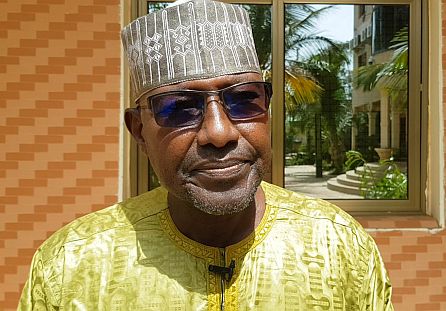 I think it is a good thing to have this project which covers the Niger part of the Mekrou River which is shared by the three countries and that actions are done on this river. In the rural commune of Kirtachi, we have a lot of potential with the natural resources on this side of the Mekrou and this is an opportunity for us to exploit these resources in the interest of the populations.
I think it is a good thing to have this project which covers the Niger part of the Mekrou River which is shared by the three countries and that actions are done on this river. In the rural commune of Kirtachi, we have a lot of potential with the natural resources on this side of the Mekrou and this is an opportunity for us to exploit these resources in the interest of the populations.
During our last municipal council in February 2022, we discussed this project, which the animator recruited made known in the commune. In five villages, we have set up water users' associations (WUAs) and we intend to continue setting up WUAs in all the villages in the Mekrou basin. These associations play a fundamental role because it is through them that local development takes place, and nothing will happen without them. We involve them at all levels, and we count on their commitment for the development of our commune. The project has been launched and we will have to continue it to achieve all the objectives in the interest of our people.
Idé Hassane, mayor of Falmey: "We hope that the investments will be made as planned”
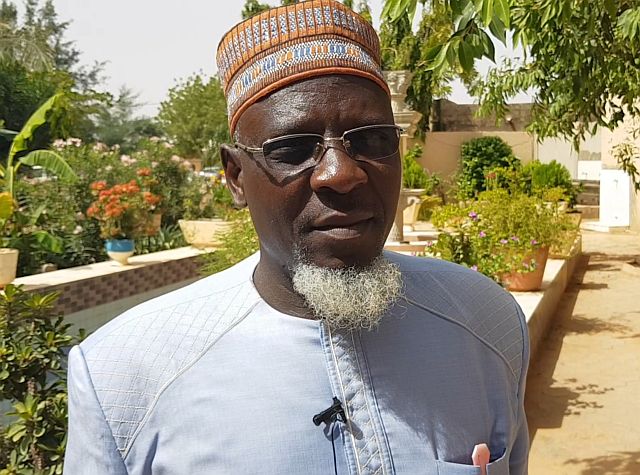 So far, we think it is a good initiative because this project is in an area that is close to our hearts: water and natural resources. And whoever talks about natural resources talks about development, so the project is there for the development of our community. We are waiting for the effective start of the priority activities, even though there have already been awareness-raising activities and meetings at various levels, including local, communal, and regional. Our Communal Development Plan (CDP), which is currently being revised, will include this project in its natural resource management component.
So far, we think it is a good initiative because this project is in an area that is close to our hearts: water and natural resources. And whoever talks about natural resources talks about development, so the project is there for the development of our community. We are waiting for the effective start of the priority activities, even though there have already been awareness-raising activities and meetings at various levels, including local, communal, and regional. Our Communal Development Plan (CDP), which is currently being revised, will include this project in its natural resource management component.
This project is a very good thing for our communities and will change many things. And as it has been conceptualized, we want to see it happen on the ground with the investments that are planned to change the face of our communities.
